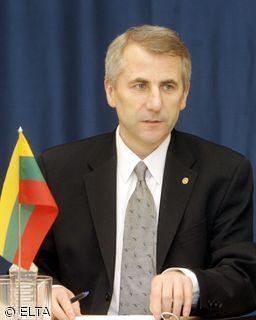European antitrust officials open inquiry into Intel’s marketing efforts
Published:
6 April 2001 y., Friday
European antitrust enforcers have opened an investigation of Intel Corp.’s business tactics, taking up an effort the Federal Trade Commission ended last year with no action.
THE INVESTIGATION by the European Commission is focused in part on possible exclusionary effects of Intel’s marketing efforts, including the “Intel Inside” marketing subsidies, lawyers close to the case said. These incentives are alleged to have been used to reward computer makers that use Intel chips exclusively, while punishing those companies building personal computers using competitors’ chips.
The investigation is examining Intel’s licensing of the design for the internal data pathway, or “bus,” of its chips, the lawyers close to the case said. Investigators also are weighing allegations from competitors that Intel strong-armed customers who bought rival computer chips; such customers were alleged to have been denied crucial design data, and their access to supplies of new Intel chips was limited. In a statement late Thursday, Intel confirmed that it has been asked to provide information to European authorities “regarding Intel’s policies in licensing its bus architectures for Intel microprocessors and our general business practices.” The Santa Clara, Calif., chip maker said it is cooperating with the inquiry but wouldn’t comment further on its specifics.
“We believe our business practices are both fair and lawful,” the company’s statement concluded. In the past, Intel has successfully addressed concerns raised by U.S. antitrust enforcers and has repeatedly prevailed in private antitrust suits.
Šaltinis:
msnbc.com
Copying, publishing, announcing any information from the News.lt portal without written permission of News.lt editorial office is prohibited.
The most popular articles
 When you fill up your car with petrol you often find that your hand will reek of petrol unless you have worn gloves.
more »
When you fill up your car with petrol you often find that your hand will reek of petrol unless you have worn gloves.
more »
 The EU is going through its worst recession since WWII. Inflation has slowed, but employment and public finances are hard hit. The situation should stabilise in 2010.
more »
The EU is going through its worst recession since WWII. Inflation has slowed, but employment and public finances are hard hit. The situation should stabilise in 2010.
more »
 In the current economic environment, banks should carefully analyze the current and future total cost of ownership of their technology assets, and evaluate the outsourcing alternative.
more »
In the current economic environment, banks should carefully analyze the current and future total cost of ownership of their technology assets, and evaluate the outsourcing alternative.
more »
 Commission proposes first EU law on hedge funds and issues guidelines on bank pay practices.
more »
Commission proposes first EU law on hedge funds and issues guidelines on bank pay practices.
more »
 On 30 April, Lithuania’s Minister of Foreign Affairs Vygaudas Ušackas took part in the round table discussion “The European Union’s External Trade Policy and Lithuania’s Positions: Threats and Possibilities for the Lithuanian Industry”.
more »
On 30 April, Lithuania’s Minister of Foreign Affairs Vygaudas Ušackas took part in the round table discussion “The European Union’s External Trade Policy and Lithuania’s Positions: Threats and Possibilities for the Lithuanian Industry”.
more »
 Since 28 April this year, the clients of AB Bank SNORAS will be able to process their financial matters in a clearer and more user-friendly environment of “Internet Bank+” system.
more »
Since 28 April this year, the clients of AB Bank SNORAS will be able to process their financial matters in a clearer and more user-friendly environment of “Internet Bank+” system.
more »
 2009 ageing report: Europe tackling the challenge of an ageing population but the recession threatens a setback.
more »
2009 ageing report: Europe tackling the challenge of an ageing population but the recession threatens a setback.
more »
 More choice, investment and security of supply lie at the heart of the 3rd energy package.
more »
More choice, investment and security of supply lie at the heart of the 3rd energy package.
more »
 Swine flu, a new strain of influenza, has so far left more than a hundred dead. But in one sector, the illness could have huge benefits.
more »
Swine flu, a new strain of influenza, has so far left more than a hundred dead. But in one sector, the illness could have huge benefits.
more »
 Central European bargain hunters are crossing borders for the best buys. Slovakian shoppers in Hungary are making the most of their new eurozone membership.
more »
Central European bargain hunters are crossing borders for the best buys. Slovakian shoppers in Hungary are making the most of their new eurozone membership.
more »